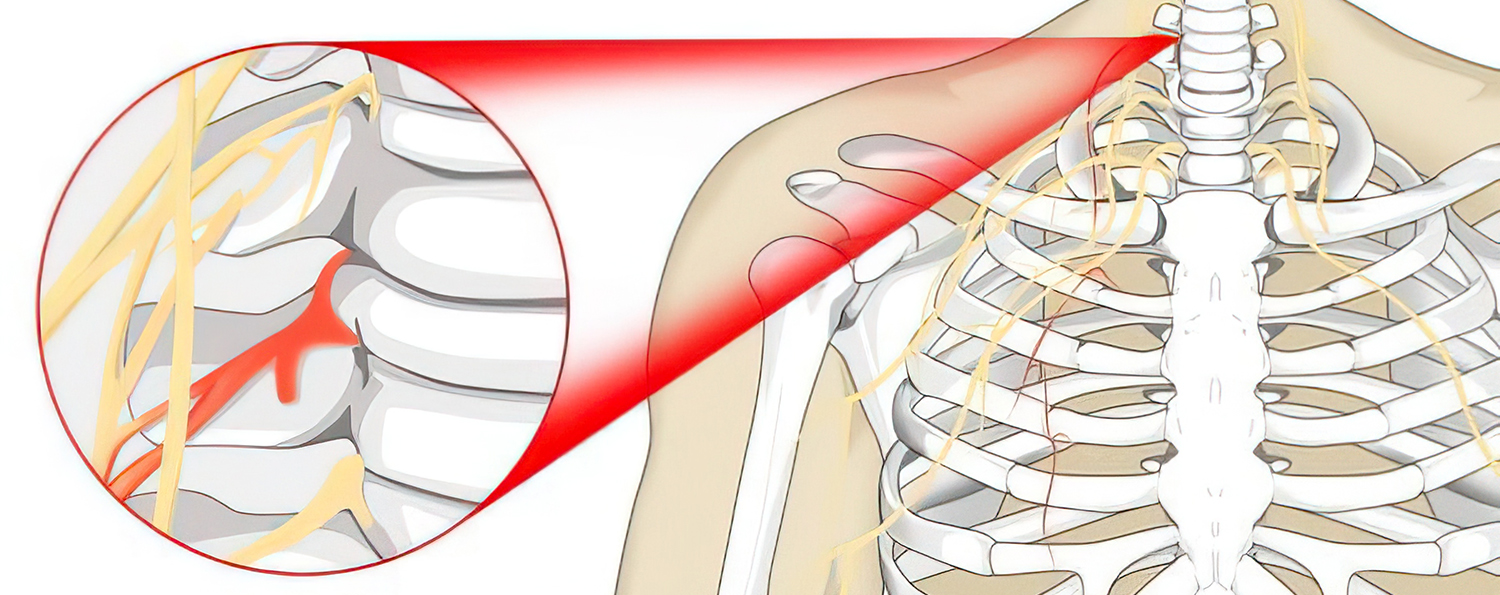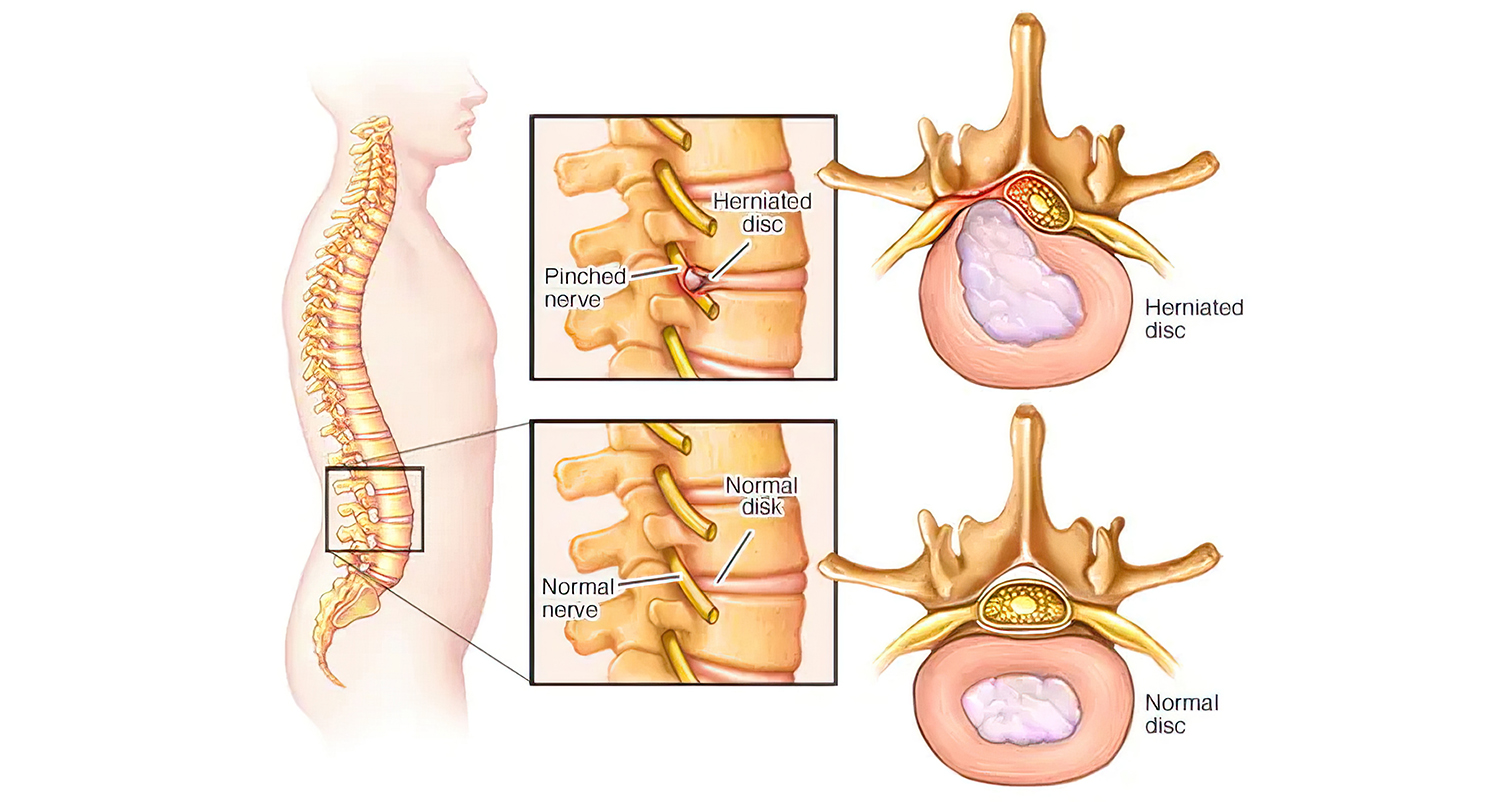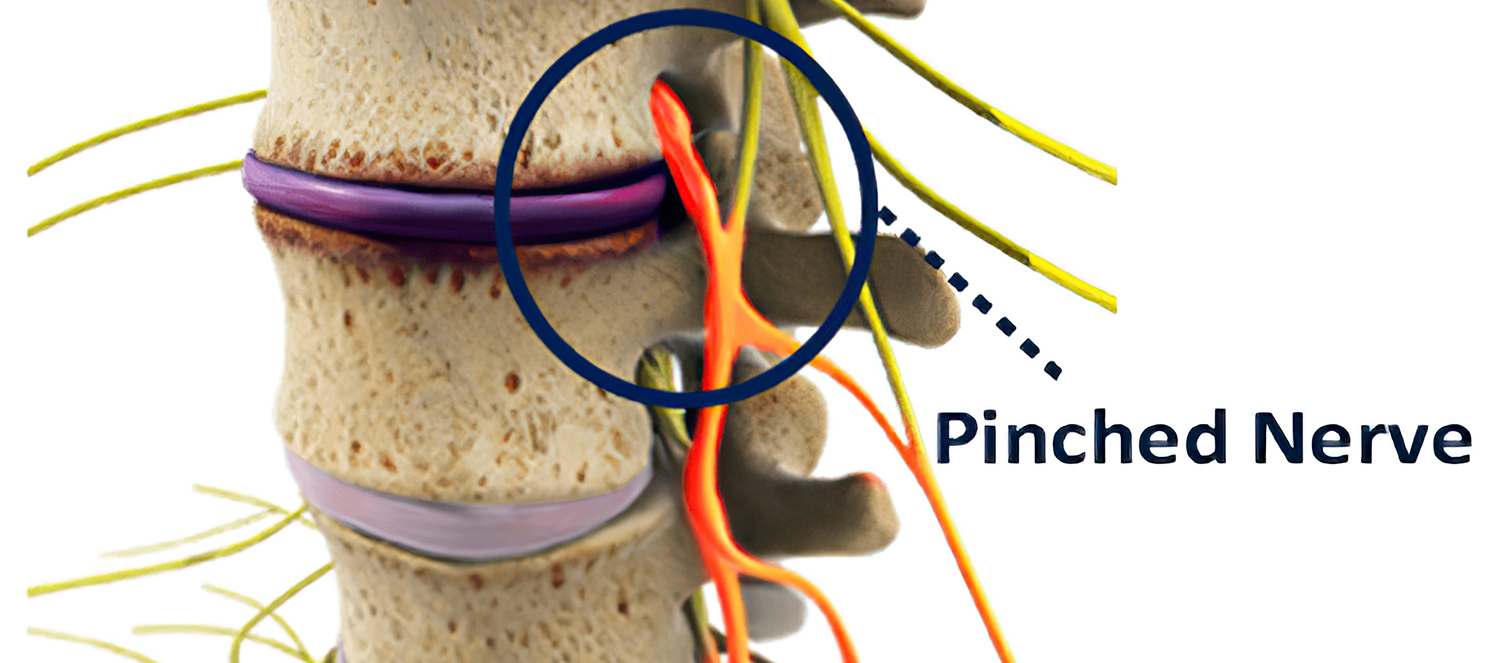PINCHED NERVE

What is a Pinched Nerve?
A pinched nerve is a painful experience affecting millions of Americans every year. Pinched or compressed nerves are usually a result of bone or connective tissue placing too much pressure on a nerve. This pressure causes inflammation, impeding nerve function which our bodies interpret as pain.
A pinched nerve can occur at several sites in your body. For example, a herniated disk in the lower spine may put pressure on a nerve root, causing radiating pain to your leg. However, with rest and other conservative treatments, recovery typically a few days. On the other hand, surgery may be needed in some cases to relieve pain.
Pinched Nerve Causes
A pinched nerve is caused by too much pressure being applied to the nerve by surrounding tissue.
Below you will find the most common causes:
- Obesity
- Incorrect posture
- Aggressive sports or training
- Bone spurs
- Trauma/injury
- Thyroid conditions
- Diabetes
- Pregnancy
- Rheumatoid arthritis
- Herniated disc

Pinched Nerve Symptoms
- Numbness or decreased sensation in the area supplied by the nerve
- Sharp, aching, or burning radiating pain
- Frequent feeling that a foot or hand has “fallen asleep”
- Tingling, “pins and needles” sensation
- Muscle weakness in the affected area
Diagnosing Compressed Nerves
- Nerve conduction study. This test measures electrical nerve impulses and functioning in your muscles and also nerves. This is performed through electrodes placed on your skin. The study measures the electrical impulses in your nerve signals when a small current passes through. So, test results will tell your doctor whether you have a damaged nerve.
- Electromyography (EMG). During an EMG, your doctor inserts a needle electrode through your skin into various muscles. The test evaluates the electrical activity of your muscles when they contract and when they’re at rest. Therefore, test results will tell your doctor if there is damage to the nerves leading to the muscle.
- Magnetic resonance imaging (MRI). This test uses a powerful magnetic field and radio waves to produce detailed views of your body in multiple planes. Therefore, this test may be used if your doctor suspects nerve root compression.
- High-resolution ultrasound. Ultrasound uses high-frequency sound waves to produce images of structures within your body. However, it’s helpful for diagnosing nerve compression syndromes, such as carpal tunnel syndrome.

